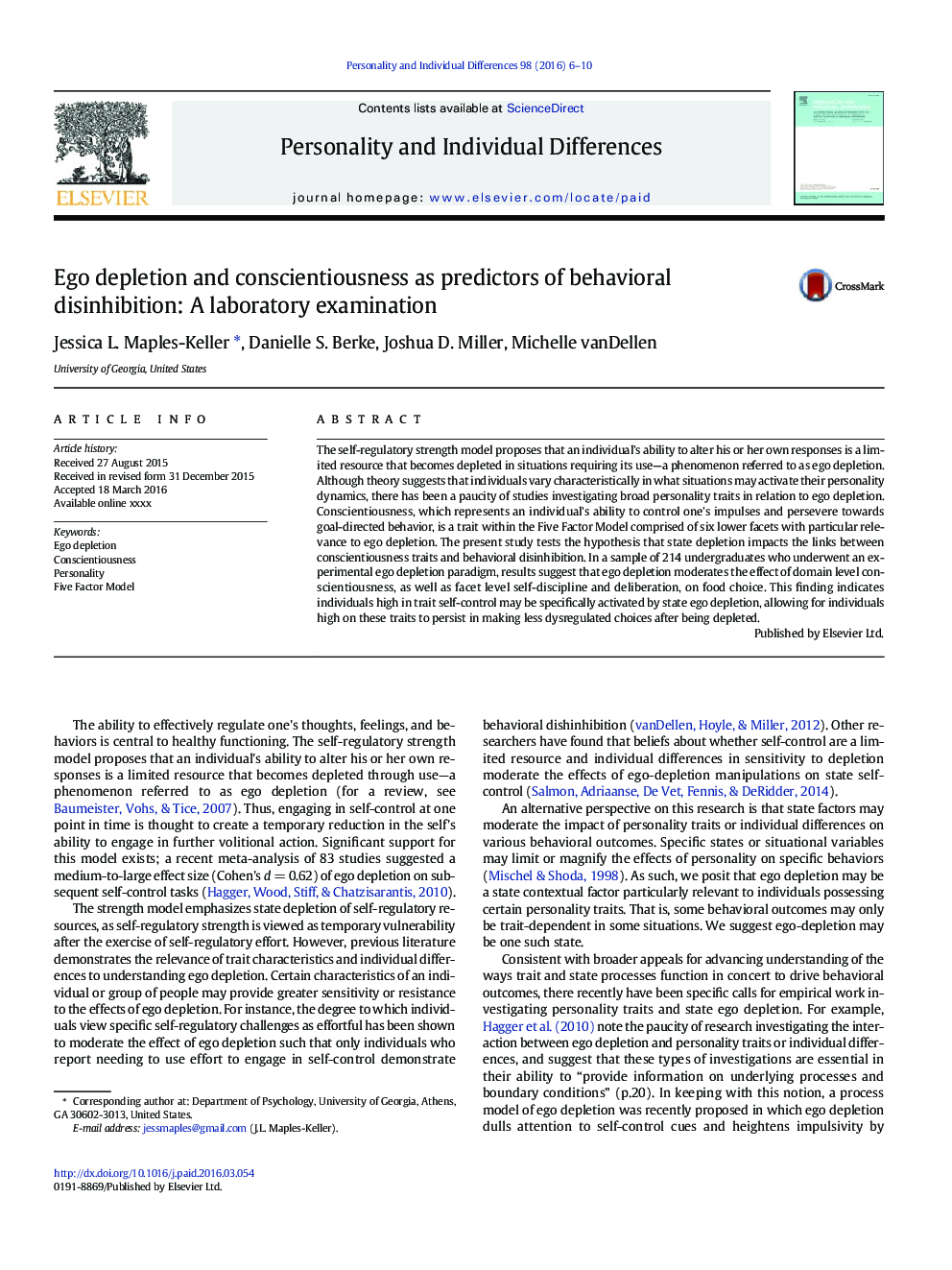| Article ID | Journal | Published Year | Pages | File Type |
|---|---|---|---|---|
| 7249885 | Personality and Individual Differences | 2016 | 5 Pages |
Abstract
The self-regulatory strength model proposes that an individual's ability to alter his or her own responses is a limited resource that becomes depleted in situations requiring its use-a phenomenon referred to as ego depletion. Although theory suggests that individuals vary characteristically in what situations may activate their personality dynamics, there has been a paucity of studies investigating broad personality traits in relation to ego depletion. Conscientiousness, which represents an individual's ability to control one's impulses and persevere towards goal-directed behavior, is a trait within the Five Factor Model comprised of six lower facets with particular relevance to ego depletion. The present study tests the hypothesis that state depletion impacts the links between conscientiousness traits and behavioral disinhibition. In a sample of 214 undergraduates who underwent an experimental ego depletion paradigm, results suggest that ego depletion moderates the effect of domain level conscientiousness, as well as facet level self-discipline and deliberation, on food choice. This finding indicates individuals high in trait self-control may be specifically activated by state ego depletion, allowing for individuals high on these traits to persist in making less dysregulated choices after being depleted.
Related Topics
Life Sciences
Neuroscience
Behavioral Neuroscience
Authors
Jessica L. Maples-Keller, Danielle S. Berke, Joshua D. Miller, Michelle vanDellen,
